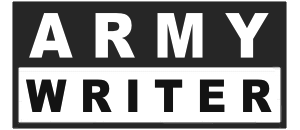* SGT _________, on 1 March 2022 you were promoted to Sergeant. This counseling is to inform you on what is expected of you as a Non-Commissioned Officer (NCO).
* From here-on-out you will be evaluated on a yearly basis with a Non-Commissioned Officer Evaluation Report (NCOER) DA Form 2166-9-1. You will also be counseled on a quarterly basis regarding your performance in accordance with (IAW) AR 600-20. You will be expected to regularly counsel your subordinates on their performance and correct deficiencies when needed. It is your responsibility as an NCO to instill good order and discipline within the formation. It is important to remember the Creed of the Non-Commissioned Officer and strive to live up to the values laid out in the creed.
* In your NCOER you will be evaluated based on the following areas:
- Additional Duties
- Character (Army Values, Empathy, Warrior Ethos/Service Ethos, and Discipline. Fully supports SHARP, EO, and EEO)
- Presence (Military and professional bearing, Fitness, Confidence, Resilience)
- Intellect (Mental agility, Sound judgment, Innovation, Interpersonal tact, Expertise)
- Leads (Leads others, Builds trust, Extends influence beyond the chain of command, Leads by example, Communicates)
- Develops (Creates a positive command/workplace environment, Fosters esprit de corps, Prepares self, Develops others, Stewards the profession)
- Achieves (Gets results)
* Always ensure you are continuing to better yourself and work to teach, train and mentor your Soldiers. Ensure you educate yourself on the following topics as they are important things to be familiar with as an NCO:
- On-The-Spot Corrections
- Corrective Action
- Corrective Training
- The Counseling Process
- Uniform Code of Military Justice (UCMJ)
- Chapters and Bars to Reenlist
* It is paramount that you remain professional and squared away as an NCO. Do not fraternize with your subordinates or argue with other NCOs in the presence of junior Soldiers. Disagreements between NCOs should be held in private and NCOs should back each other up as a team. Failure to abide by this will degrade your ability and the ability of your fellow NCOs to instill discipline and damage the Corps of NCOs as a whole. The only exception to this is if a fellow NCO is violating a safely rule/regulation or doing something illegal, immoral or unethical. In that case, you must intervene, act and motivate to ensure the situation is corrected. Do not back down from toxic leaders and do not be afraid to utilize the chain of command, inspector general or SHARP/EO representatives. You have a duty as an NCO to ensure these policies are strictly enforced. Protect yourself, your peers and your subordinates at all times.
* When conducting operations in the field, you will be expected to conduct Pre-Combat Checks (PCCs) where you will check your subordinates to ensure they have the necessary personal protective equipment (PPE) and other required gear for training. You will additionally be expected to keep accountability, conduct sensitive items checks and distribute information as it is put out. If you spot a deficiency during training, call it out and make a correction immediately -especially when it is in regards to safety.


